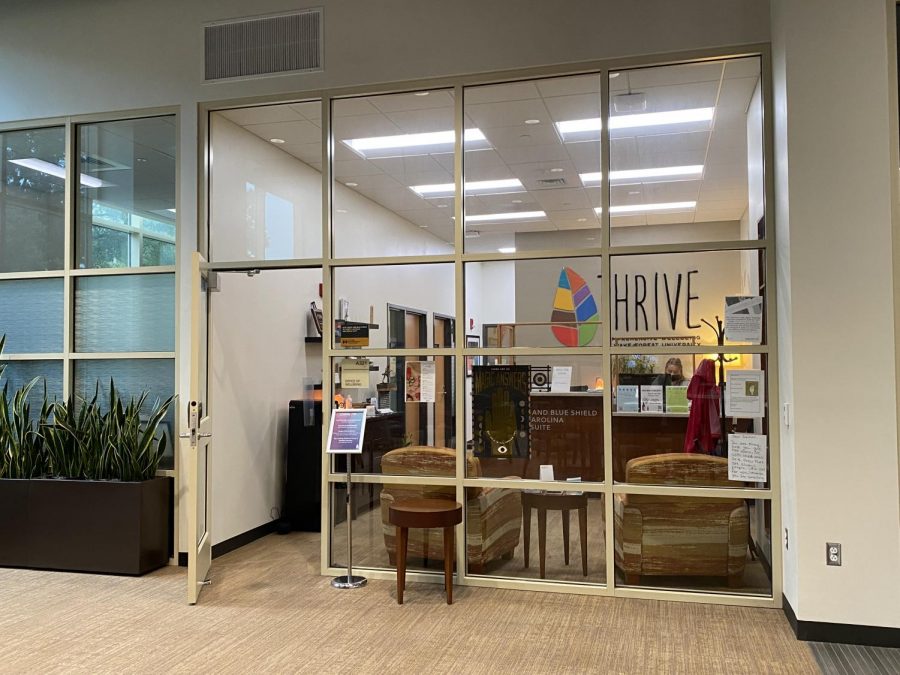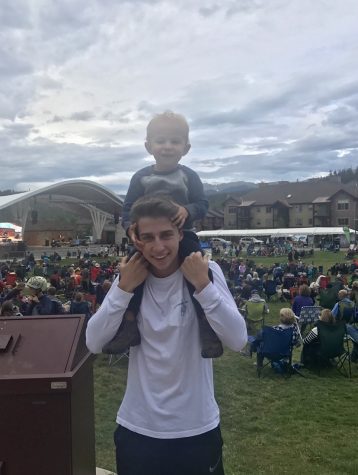Mental health resources updated
Mental health services on campus are working to address heightened volumes of anxiety
The CARE Office and the Office of Wellbeing are investigating ways they can retool to better serve the needs of Wake Forest students.
September 23, 2021
University mental health outlets are updating their strategies to better assist the Wake Forest community.
Services such as the CARE Team — an outlet through which Wake Forest students, faculty and staff can make anonymous referrals if they feel someone they know might be experiencing mental health issues — and the Office of Wellbeing have witnessed negative mental impacts brought on by traumatic events in the past month, such as a large student protest and controversy involving sexual assault followed quickly by the fatal shooting of a student at nearby Mount Tabor High School. As a result, these offices are making significant adjustments to meet student needs.
Office of Wellbeing program manager Ashley Hawkins Parham said that though her department focuses more on resilience and wellbeing coaching programming rather than direct trauma response, it has experienced a significant uptick in students coming in to express anxiety-related concerns.
“We have noticed more people than previous years coming by just to say, ‘I feel overwhelmed. What should I do? Where can I go?’” Parham said. “In the beginning of the semester, we have seen a lot more students than we are used to having.”
Changes in the works from the Office of Wellbeing include increased bystander intervention training requirements for student organizations as well as enhanced assistance for individuals who have played an activist role on campus and may be struggling mentally as a result, according to Parham.
These initiatives advance the office’s objective to help prevent traumatic events from occurring in the future, she added.
“At a higher level, the folks in our office are playing a role in trying to have widespread campus responses to this incident and reinstate the prevention work we already offer,” Parham said. “Our building on that is literally a catalyst of this event — how do we get that stronger? How do we get out there and help keep these things from happening in the first place?”
Several stressors, including concerns related to the pandemic, racial and sexual violence on campus; the Mount Tabor shooting, Hurricane Ida and general school-related anxiety are attacking the Wake Forest community from all sides, said Candace Epps Jackson, assistant dean of students and CARE case manager.
“I think anytime you’re dealing with so many layered, complex or emotionally-taxing issues, it impacts your capacity just to be able to do everyday life,” Jackson said. “I think that’s true for everyone.”
While student challenges with mental health are increasingly common, faculty and staff were also hit hard by the events of the past few weeks, especially the Mount Tabor shooting, according to CARE case manager Mary Katherine Newsome.
“Mount Tabor is the school district for many of our faculty and staff’s children,” she said. “I would say this is the most faculty and staff referrals we’ve seen.”
The CARE Team has created an outreach plan that involves partnerships with the University Counseling Center, the Intercultural Center, the SAFE Office, the Women’s Center, the LGBTQ+ Center and the Office of Family Engagement, among others, to bolster outreach efforts toward the Wake Forest community, Jackson said.
“We have really been intentional with developing this outreach plan, “ Jackson added, “really trying to maximize on the relationships that each of us have with different people in these spaces — reaching out to say ‘this is how we believe we can support you as you work to support students and how we can support students directly.”
Newsome believes that in a time where the community’s mental health is in such a delicate state, the wellbeing of Wake Forest students must be considered and prioritized.
“In any situation where students are saying that they don’t feel safe or they’re feeling unheard, to me, step one is always to listen,” she said. “Obviously, in the immediacy of a crisis you need to be Johnny-on-the-spot with responses and things like that. But, barring those immediate moments, I think it’s important to listen, be thoughtful, take that feedback that you’re receiving and take steps to make changes if needed.”
Student Body President Ally Swartzberg believes that striving for a culture of unity and collaboration is the best way for Wake Forest to move forward.
“How you move forward as a community, I think, is to really harness this collective action that we’re seeing and take it upon ourselves — as a student population — to acknowledge our differences and to value them,” Swartzberg said.























